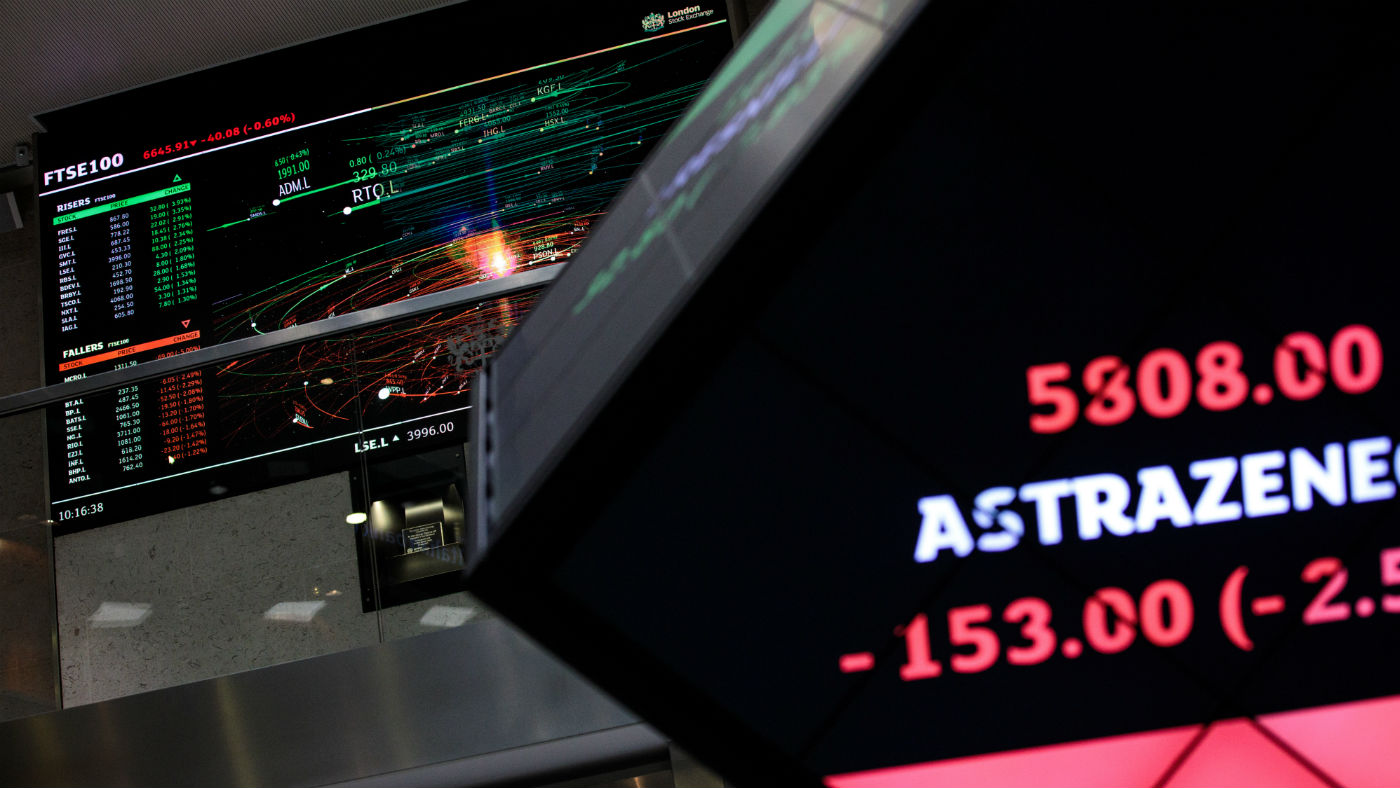Why are fewer European companies listing?
Brexit uncertainty, US-China trade dispute and slowing economy leaves number of firms going public at ten-year low

A free daily email with the biggest news stories of the day – and the best features from TheWeek.com
You are now subscribed
Your newsletter sign-up was successful
The number of European companies going public has fallen to its lowest level since the immediate aftermath of the financial crisis, as uncertainty over Brexit, the ongoing US-China trade war and slowing global economy contributes to a ‘watch-and-wait’ approach.
Refinitiv data shows proceeds from European listings dipped to $292 million in the first three months of 2019, compared to $13.9 billion made in the same period a year ago.
In all, just two companies have listed on the London Stock Exchange, Europe’s biggest, so far this year, in contrast to just a few months earlier.
The Week
Escape your echo chamber. Get the facts behind the news, plus analysis from multiple perspectives.

Sign up for The Week's Free Newsletters
From our morning news briefing to a weekly Good News Newsletter, get the best of The Week delivered directly to your inbox.
From our morning news briefing to a weekly Good News Newsletter, get the best of The Week delivered directly to your inbox.
Uncertainty around Brexit, the impact of a global trade war instigated by the Trump administration and concern about the state of the global economy has left many firms who had planned to go public in 2019 holding back and waiting to see if conditions improve.
“Bankers say some companies are put off because they cannot achieve top valuations that were available up to a year ago” reports Reuters, while “those without the appetite to go public with their shares are instead looking to private stake sales and cash injections, previously favoured among tech start-ups”.
It comes as Bloomberg reports that “european dealmaking is on course for its worst first quarter since the height of the credit crisis”.
Unless something dramatic happens by the end of the week, Europe is on track to have the worst quarter for mergers and acquisitions since 2013, “when unemployment and austerity plans were causing protests and countries were asking the European Union to bail out their banks”, says the financial news service.
A free daily email with the biggest news stories of the day – and the best features from TheWeek.com
It is a different story in the US where, despite growing concern the economy could be overheating, growth remains strong and “investors have shown strong appetite for new stock listings”, reports the BBC.
In a show of faith in the current state of the US stock market, Uber will list its shares on the New York Stock Exchange in what is expected to be the biggest initial public offering of the year.
The US ride-hailing company is expected to make its paperwork public as soon as April for a listing that bankers and investors think could value it at more than $100bn.
The Financial Times says Uber’s IPO “is one of a number of hotly anticipated Silicon Valley listings expected in the coming months”. Its smaller US rival Lyft plans to list its shares on Nasdaq next week.
Elliott Goat is a freelance writer at The Week Digital. A winner of The Independent's Wyn Harness Award, he has been a journalist for over a decade with a focus on human rights, disinformation and elections. He is co-founder and director of Brussels-based investigative NGO Unhack Democracy, which works to support electoral integrity across Europe. A Winston Churchill Memorial Trust Fellow focusing on unions and the Future of Work, Elliott is a founding member of the RSA's Good Work Guild and a contributor to the International State Crime Initiative, an interdisciplinary forum for research, reportage and training on state violence and corruption.
-
 How to Get to Heaven from Belfast: a ‘highly entertaining ride’
How to Get to Heaven from Belfast: a ‘highly entertaining ride’The Week Recommends Mystery-comedy from the creator of Derry Girls should be ‘your new binge-watch’
-
 The 8 best TV shows of the 1960s
The 8 best TV shows of the 1960sThe standout shows of this decade take viewers from outer space to the Wild West
-
 Microdramas are booming
Microdramas are boomingUnder the radar Scroll to watch a whole movie
-
 Epstein files topple law CEO, roil UK government
Epstein files topple law CEO, roil UK governmentSpeed Read Peter Mandelson, Britain’s former ambassador to the US, is caught up in the scandal
-
 Iran and US prepare to meet after skirmishes
Iran and US prepare to meet after skirmishesSpeed Read The incident comes amid heightened tensions in the Middle East
-
 Israel retrieves final hostage’s body from Gaza
Israel retrieves final hostage’s body from GazaSpeed Read The 24-year-old police officer was killed during the initial Hamas attack
-
 China’s Xi targets top general in growing purge
China’s Xi targets top general in growing purgeSpeed Read Zhang Youxia is being investigated over ‘grave violations’ of the law
-
 Panama and Canada are negotiating over a crucial copper mine
Panama and Canada are negotiating over a crucial copper mineIn the Spotlight Panama is set to make a final decision on the mine this summer
-
 Why Greenland’s natural resources are nearly impossible to mine
Why Greenland’s natural resources are nearly impossible to mineThe Explainer The country’s natural landscape makes the task extremely difficult
-
 Iran cuts internet as protests escalate
Iran cuts internet as protests escalateSpeed Reada Government buildings across the country have been set on fire
-
 US nabs ‘shadow’ tanker claimed by Russia
US nabs ‘shadow’ tanker claimed by RussiaSpeed Read The ship was one of two vessels seized by the US military